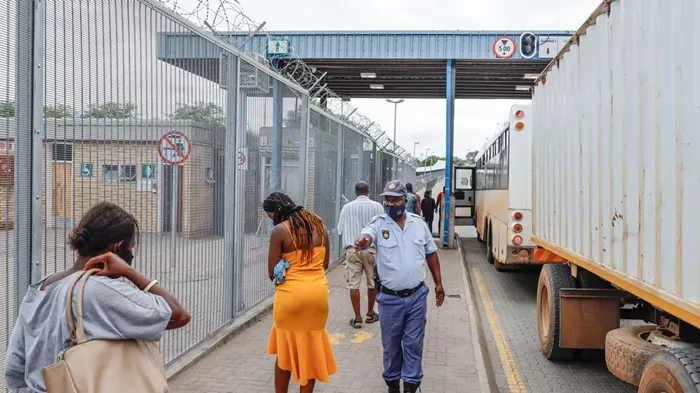In a bid to access affordable healthcare and essential medicines, many Zimbabweans are making regular trips across the border to Zambia, highlighting the stark challenges faced in their home country’s healthcare system.
Margaret Tshuma, a 53-year-old from Diki village in Zimbabwe’s Hwange district, travels approximately 120km (75 miles) to Zambia each month to purchase medication for her husband, who suffers from scleritis. This inflammatory eye condition necessitates medication that is both scarce and prohibitively expensive in local pharmacies.
“The same medication is expensive back home,” Tshuma explains. “Considering transport costs, it remains more cost-effective to buy in Zambia. Moreover, availability issues in Zimbabwe endanger patients’ lives.”
In Zimbabwe, Tshuma spends about $85 monthly on medication. Across the border in Livingstone, Zambia, she pays 320 kwacha ($13), making the trip financially advantageous despite travel expenses.
Zimbabwe’s economy, marred by prolonged economic crises and hyperinflation, has severely impacted access to healthcare and basic necessities. Confidence in the local currency has dwindled, exacerbating challenges in obtaining essential medical supplies.
Mike Muleya, a bus operator facilitating transport between Hwange and Victoria Falls, notes a significant number of passengers travel daily for medical purposes. “In the morning, I transport six to nine passengers to Victoria Falls for border crossings,” he says, underscoring the demand for cross-border healthcare access.
The disparity in healthcare access is glaring between Zimbabwe’s affluent and economically disadvantaged populations. Those relying on state healthcare face long queues and inadequate services, prompting many to seek alternatives across the border.
A report by the Community Working Group on Health highlights these disparities, emphasizing the urgent need for improved primary healthcare services and universal health coverage in Zimbabwe. Poorer Zimbabweans, who cannot afford private healthcare, find themselves at a severe disadvantage.
Mercy Khumalo from Matetsi Ward 1 recounts the financial strain of seeking treatment for her aunt’s brain tumor. Despite local consultations, they opted for Zambia due to affordability and accessible public healthcare services.
“Foreigners accessing Zambia’s public healthcare system find it affordable,” explains Natasha Chola Mukuka, a public health practitioner in Lusaka, Zambia. While specialized care incurs costs, Zimbabwean patients often find it more economical compared to local private services.
Infrastructure in Zimbabwe’s Matabeleland North province, including healthcare facilities, remains inadequate. The construction of 5 Miles Hospital, aimed at serving Hwange and Victoria Falls, stalled in 2018, leaving residents dependent on limited facilities like St Mary’s Hospital.
Fidelis Chima of the Greater Hwange Residents Trust criticizes government inaction despite promises of healthcare infrastructure improvements. He notes ongoing challenges with under-equipped hospitals and insufficient medical personnel, further complicating healthcare access.
Zimbabweans crossing into Zambia for medical purposes face tightened border controls, requiring stamped prescriptions to deter drug smuggling. Previously, lax regulations facilitated informal medical transactions, contributing to cross-border healthcare traffic.
As Margaret Tshuma heads home, she anticipates future trips unless local healthcare infrastructure improves. “Accessible hospitals and affordable medicines nearer to home would save lives,” she asserts, echoing sentiments for sustainable healthcare solutions within Zimbabwe.
The cross-border healthcare phenomenon underscores Zimbabwe’s urgent need for comprehensive healthcare reforms and infrastructure investments to alleviate burdens on its citizens and ensure equitable healthcare access nationwide.
Related topics:
- Impact of Abortion Restrictions on Mental Health Revealed in Latest Study
- New Study Highlights Health Risks of Transitioning Ships from Diesel to Ammonia Fuel
- VA Health Chat Now Available Across All 18 VISNs


